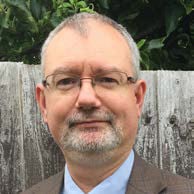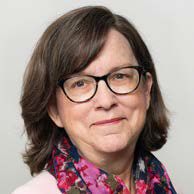Called into Community: Vocation, Engagement, and Difference
The Council of Independent Colleges (CIC) is pleased to invite teams of campus leaders to the sixth national conference of the Network for Vocation in Undergraduate Education (NetVUE), which will be held March 24−26, 2022, at the Sheraton Dallas Hotel in Dallas, Texas.
Under the theme “Called into Community: Vocation, Engagement, and Difference,” the 2022 NetVUE Conference will examine how attention to vocation and calling can draw us into deep engagement with the needs of the world, meaningful reflection on difference, and more sustained attention to the ways that these issues shape how we, and our students, think about our future directions in life. The conference will explore engagement and difference through various lenses: theological reflection across faith traditions, initiatives to develop future professional and civic leaders, and inquiries into issues of justice, inclusion, and the common good.
An array of distinguished speakers will address such topics as the call to be agents of change, the resilience of religion in higher education, and the importance of engaging with texts across traditions. Concurrent sessions will address issues of interest to NetVUE member institutions and offer opportunities to exchange ideas about vocational exploration in theory and practice. Campus teams will present their own sessions on topics of interest to the larger membership. The entire conference is designed to provide participants with a wide range of resources to sustain and broaden the work of vocational reflection—in the classroom, the advising process, career development, campus ministry, community engagement, and other spheres of undergraduate life. Participants will also have opportunities to network with colleagues in similar roles at other institutions.
We welcome your participation in the 2022 NetVUE Conference. Through this event, NetVUE seeks to expand the capacity of member institutions to guide professional development of faculty members and staff, who in turn support their students. The network’s ultimate goal is to nurture future leaders who have developed strong religious and theological literacy, whose opinions and behaviors are shaped by the exploration of their commitments, and who are eager to sustain a life of meaning and purpose guided by a sense of calling. We look forward to meeting in Dallas in order to learn from one another, to share ideas around the conference themes of community, engagement, and difference, and to hear from participants as to how NetVUE can be an asset to their institutions in the years to come.

CIC is grateful to Lilly Endowment Inc. for its ongoing support of NetVUE.
Participating in Your First NetVUE Conference?
If this is your first NetVUE Conference, you are not alone! Over the course of NetVUE’s history, approximately half of the participants in each biennial conference have been new to the network, or at least new to the event. The conference is known for the energy of its participants and an extremely full program, so first-time participants are strongly encouraged to arrive by midday on Thursday in order to participate in a special orientation session. New participants will be introduced to the network, its staff, and its programs and services. This session will offer guidance for approaching the NetVUE Conference and bringing its insights home to campus. It also will provide an excellent opportunity for newcomers to get to know others. Please join us at 2:00 p.m. on Thursday, March 24, for this important orientation session.
Pre- and Post-Conference Workshops
Surveys of participants in past NetVUE Conferences have indicated a desire for a slightly longer conference and more opportunities to gather in smaller groups. In response to this expression of interest, NetVUE will offer, for the first time, pre- and post-conference workshops for those who are able to arrive a day early or stay through Saturday afternoon. Four options are being offered as a pilot program this year: two that will begin on the day preceding the conference (continuing through lunch on the following day), and two that will take place on Saturday afternoon, after the conference concludes.
These workshops require pre-registration as space is limited. Registration is open to anyone also registered for the NetVUE Conference. An additional registration fee covers materials and refreshments (and, in the case of the pre-conference workshops, meals and overnight lodging at the conference hotel). If you have already registered and would like to add a pre- or post-conference workshop to an existing registration, please contact Tabitha Truscott, CIC conference and program manager, at ttruscott@cic.edu.
For a detailed schedule of the pre- and post-conference workshops, see their respective entries in the conference schedule above.
An Ongoing Conversation
As a learning community, NetVUE supports member campuses as they help students discover, explore, and wrestle with their callings. Learning communities flourish when members share common readings, join in mutual conversations, and compare their perspectives. At the 2022 NetVUE Conference, the initiatives described below are designed to stimulate and strengthen the NetVUE community of reflection and discernment.
Pre-Conference Readings
Prior to the conference, participants are invited to read a selection of materials to help focus discussions throughout the event. Recommended readings include a variety of book chapters and blog posts among which participants can choose, according to their interests. View a list of suggested pre-conference reading.
Networking and Cohorts
One of the most important goals of the NetVUE Conference is to stimulate and strengthen the development of networks across member institutions. Many sessions are designed to introduce participants to individuals on other campuses that share certain commonalities with one another, whether institutional (size, type, setting, religious affiliation) or individual (position, campus role, portfolio, on-campus networks). Participants are encouraged to make use of these opportunities—both within and outside of formal sessions—for networking and for the creation and development of cross-campus cohorts for mutual support.
Small Discussion Groups
On Thursday afternoon and during Friday’s lunch, participants will meet in small groups, designed to create new relationships among those who share various commonalities but who might not yet have met. The primary purpose of these conversations is to compare and contrast approaches to vocational reflection and discernment and to consider how vocation-related initiatives can be sustained over time.
Forums for Presidents and Chief Academic Officers
Presidents and chief academic officers are invited to take part in candid conversations regarding changing institutional contexts and approaches to broaden and sustain vocational exploration initiatives while attending to institutional mission and resources. Presidents will gather on Friday morning and chief academic officers on Saturday morning for these discussions. In each case, two NetVUE member leaders in these roles will facilitate the discussion.
About NetVUE
The Network for Vocation in Undergraduate Education (NetVUE) is a nationwide campus-supported network that fosters vocational exploration and discernment among college and university students. Through national conferences and regional gatherings, faculty seminars and scholarly resources, campus visit and consulting programs, and a wide range of grant initiatives, NetVUE encourages member institutions to develop and extend vocation-related conversations and programming on their campuses.
An initiative of the Council of Independent Colleges (CIC), NetVUE is supported by member dues and by the generosity of Lilly Endowment Inc., which has brought conversations about vocation and calling to national prominence through a series of major grant initiatives over the past two decades. Among these were its Programs for the Theological Exploration of Vocation (PTEV), which supported major initiatives on 88 college and university campuses between 1999 and 2009. As the Lilly Endowment’s direct support of PTEV concluded, CIC—with support from Lilly—launched NetVUE in 2009. Since that time, more than 270 colleges and universities have joined this CIC-sponsored network.
Biennial national conferences of NetVUE have been held since 2011, with the 2019 NetVUE Conference bringing together nearly 700 campus leaders from about 200 colleges and universities to explore vocational frameworks and practices. NetVUE member institutions, most of which are rooted in the liberal arts, represent a wide range of religiously-affiliated institutions as well as many without specific religious ties. They are united by their commitment to strengthen and deepen vocational exploration and discernment on their campuses, both in the classroom and in other areas of undergraduate student life.
View additional information about NetVUE, including its purposes, progams, and services.
Not Yet a Member of NetVUE?
CIC welcomes the participation of additional independent colleges and universities in NetVUE. Institutions that join NetVUE gain access to a wide array of resources, programs, and services, and are immediately eligible to send a three-person team to the NetVUE Conference with all costs waived for registration, lodging, and meals. View additional information about NetVUE membership, including an application to join.Please complete the membership application prior to submitting conference registration. For questions about NetVUE, please contact David S. Cunningham, director of NetVUE, at dcunningham@cic.nche.edu or (616) 395-6750.
Hotel and Travel
Sheraton Dallas Hotel
400 North Olive Street
Dallas, TX 75201
(214) 922-8000
Please note: Participants must make their own hotel reservations after registering for the conference. The hotel room rate for conference dates is included with conference registration.
Room Rate:
$184 single/double per night
Hotel Reservation Deadline:
February 15, 2022
The Sheraton Dallas Hotel is located in the heart of the arts and financial district of downtown Dallas and has been recently renovated. The hotel features several dining options (including a Grab ‘n Go market), an outdoor pool, and a fitness center, in addition to 1,840 renovated guest rooms. DART light rail offers easy access from the hotel to Dallas’s vibrant entertainment districts, including the Arts District, Uptown, and Deep Ellum. The hotel also is within walking distance of the Dallas Museum of Art, Dallas World Aquarium, and the John Fitzgerald Kennedy Memorial.
Hotel Reservation Procedure
Please note: Participants must make their own hotel reservations after registering for the NetVUE Conference. The hotel room rate for conference dates (Thursday and Friday nights) is included with conference registration.
Participants must first register for the NetVUE Conference in order to make a hotel reservation. After registration, participants will receive a confirmation email that includes detailed instructions and a code to make a reservation at the Sheraton Dallas Hotel. CIC will cover the expense of the first three team members’ hotel rooms for the nights of March 24 and 25. The registration fee for fourth and fifth team members already includes payment of the discounted hotel room rate of $184 single/double per night for these two nights. (For those who have registered and paid for a pre-conference workshop, the night of Wednesday, March 23 is also included.)
The hotel reservation deadline is Tuesday, February 15, 2022. Hotel rooms may sell out before the deadline, so participants are encouraged to register for the conference and reserve their hotel rooms as soon as possible. Please note that hotel reservations made after the deadline can only be accommodated on a space-available basis and may be at a rate higher than the CIC rate.
Participants who wish to extend their stay beyond the conference dates may do so at their own expense. A limited number of rooms are available at the conference rate for an extended stay. Please call the Sheraton Dallas Hotel at (214) 922-8000 to make arrangements.
Travel Costs
Please note that travel expenses of all team members are the responsibility of individuals or their institutions. A limited number of travel grants are available to NetVUE member colleges and universities with limited resources or with unusually high travel expenses. To inquire about a travel grant, please contact David S. Cunningham, director of NetVUE, at dcunningham@cic.edu or (616) 395-6750.
Transportation
The Sheraton Dallas Hotel is located approximately eight miles from Dallas Love Field Airport (DAL) and approximately 19 miles (25 minutes) from Dallas Fort Worth International Airport (DFW). Transportation to the hotel is available from several providers that are located just outside the baggage claim area of each airport.
Transportation Options from Dallas Love Field Airport
Transportation Options from Dallas Fort Worth International Airport
Estimated rideshare and taxi fares are $25 to $30 one-way from Dallas Love Field and $35 to $55 one-way from Dallas Fort Worth International Airport.
Hotel Parking
(Rates as of July 21)
Self-parking at the Sheraton Dallas Hotel is discounted at approximately $19 per day and overnight valet parking is about $35 per day. Taxes are included with these rates.
Registration Information
Please Note: Conference participants are encouraged to register early as space is limited.
Each NetVUE institution may register a team of three to five members. For the first three team members, all conference costs (including a single hotel room for two nights, conference meals, and program materials) are covered by the institution’s NetVUE membership. Up to two additional team members may register at the institution’s expense. Please note that each team should include the president, chief academic officer, or another officer at the vice-presidential level. Institutions are encouraged to compose campus teams that contribute to the diversity of the NetVUE Conference and whose members have expertise in working with diverse student populations.
The team leader may register teams of up to five members online using the team leader’s login and password. If you do not have a CIC password or cannot recall it, or if you are not signed up in the CIC registration system, please use the “Forgot your username/password or need to create an account?” link on the login page.
To complete the team’s registration, please select the “Pay by Check” option. (No payment is due, however, for the first three team members.) Confirmation of your registration will automatically be sent by email to each member of the team. If you do not receive an email confirmation within ten days, please contact Tabitha Truscott, CIC conference and program manager, by phone at (202) 466-7260 or by email at ttruscott@cic.nche.edu.
Participants must make their own hotel reservation. After registering for the conference, participants will receive a confirmation email that includes detailed reservation instructions and a reservation code for the Sheraton Dallas Hotel. Early registration is encouraged as space is limited.
Fourth and Fifth Team Member Application
Institutions may register fourth and fifth team members at the institution’s expense. The registration fee for additional team members is:
- $950 per person, including conference materials, meals, and a single hotel room; or
- $625 per person, including conference materials, meals, and a double hotel room shared with another registered conference participant.
Please note that fourth and fifth team members may be registered at the same time as the rest of the campus team.
Registration Changes and Cancellations
Because CIC has made prior commitments to the hotel for lodging, meals, and meeting space, please make changes in conference registration as far in advance as possible. Cancellation or substitution requests should be sent via email to Lynne Spoelhof, NetVUE program manager, (lspoelhof@cic.nche.edu) no later than February 15, 2022. Substitutions are greatly preferred over cancellations whenever possible. All cancellations made after February 15 will incur a $200 cancellation fee.
Please note that hotel reservations must be canceled directly with the hotel. Charges for hotel rooms not canceled by February 28, 2022, including “no shows,” will be the responsibility of the institution.






